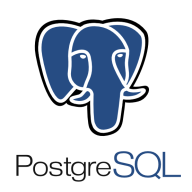

PostgreSQL and Azure Cosmos DB are leading contenders in the database market, particularly focusing on open-source relational databases and cloud-based NoSQL solutions, respectively. PostgreSQL often takes the lead with its feature abundance and community support, whereas Azure Cosmos DB excels in cloud integration and global distribution.
Features: PostgreSQL is lauded for its extensive feature set which includes strong SQL standards compliance, flexible JSON data support, and a wide range of procedural languages. It is also open-source, contributing to its widespread adoption. Azure Cosmos DB shines with its global distribution capabilities, support for multiple data models, and excellent scalability tailored for applications requiring high availability across many regions.
Room for Improvement: PostgreSQL struggles with complex read operations, lacks some SQL commands, and has limited GUI tools and replication features. Advanced backup solutions and improved JSON integration are also needed. Azure Cosmos DB could enhance cost management, documentation, and cross-container queries. Users are concerned with the pricing model, particularly request units, and seek better integration with local development tools and enhanced indexing features.
Ease of Deployment and Customer Service: PostgreSQL is widely deployed on-premises, celebrated for its cost-effectiveness and community support though users often rely on forums or third-party assistance. On the other hand, Azure Cosmos DB is primarily cloud-based, offering seamless Azure ecosystem integration and leveraging Microsoft’s dedicated support, yet users request better help documentation.
Pricing and ROI: PostgreSQL offers significant cost savings as it is an open-source solution, providing enterprise-grade features without licensing fees. Azure Cosmos DB's consumption-based pricing can turn costly, demanding careful management to avoid unexpected expenses. Despite the scalability and performance benefits justifying its price, the complex pricing model presents challenges in cost optimization.
| Product | Market Share (%) |
|---|---|
| Microsoft Azure Cosmos DB | 5.8% |
| PostgreSQL | 5.7% |
| Other | 88.5% |
| Company Size | Count |
|---|---|
| Small Business | 33 |
| Midsize Enterprise | 21 |
| Large Enterprise | 58 |
| Company Size | Count |
|---|---|
| Small Business | 57 |
| Midsize Enterprise | 26 |
| Large Enterprise | 46 |
Microsoft Azure Cosmos DB offers scalable, geo-replicated, multi-model support with high performance and low latency. It provides seamless Microsoft service integration, benefiting those needing flexible NoSQL, real-time analytics, and automatic scaling for diverse data types and quick global access.
Azure Cosmos DB is designed to store, manage, and query large volumes of both unstructured and structured data. Its NoSQL capabilities and global distribution are leveraged by organizations to support activities like IoT data management, business intelligence, and backend databases for web and mobile applications. While its robust security measures and availability are strengths, there are areas for improvement such as query complexity, integration with services like Databricks and MongoDB, documentation clarity, and performance issues. Enhancements in real-time analytics, API compatibility, cross-container joins, and indexing capabilities are sought after. Cost management, optimization tools, and better support for local development also require attention, as do improvements in user interface and advanced AI integration.
What are the key features of Azure Cosmos DB?Industries use Azure Cosmos DB to support business intelligence and IoT data management, using its capabilities for backend databases in web and mobile applications. The platform's scalability and real-time analytics benefit sectors like finance, healthcare, and retail, where managing diverse datasets efficiently is critical.
PostgreSQL is a versatile and reliable database management system commonly used for web development, data analysis, and building scalable databases.
It offers advanced features like indexing, replication, and transaction management. Users appreciate its flexibility, performance, and ability to handle large amounts of data efficiently. Its robustness, scalability, and support for complex queries make it highly valuable.
Additionally, PostgreSQL's extensibility, flexibility, community support, and frequent updates contribute to its ongoing improvement and stability.
We monitor all Vector Databases reviews to prevent fraudulent reviews and keep review quality high. We do not post reviews by company employees or direct competitors. We validate each review for authenticity via cross-reference with LinkedIn, and personal follow-up with the reviewer when necessary.